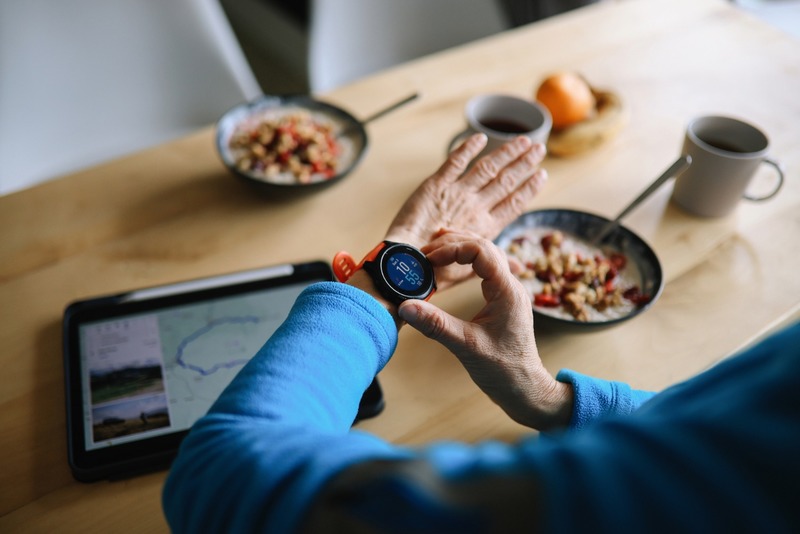News
Get to Know a New VVMC Doc: Cardiologist Jerry Greenberg
Vail Valley Medical Center is pleased to introduce Dr. Jerry Greenberg a board-certified cardiologist specializing in interventional cardiology and the director of Vail Valley Medical Center's Cardiology Institute (formerly Avanti Cardiology). Among other notable honors during his impressive career Greenberg has repeatedly been recognized by 5280 Magazine as a Top Doctor most recently in 2013.
With extensive experience in the use of intravascular ultrasound and other imaging equipment to identify heart conditions and ensure proper treatment Greenberg will lead the development of a cardiac catheterization lab opening in early 2015.
He will be practicing in VVMC's newly renovated Vail clinic Edwards Eagle and the new Specialty Clinic on Frisco's Main Street set to open in August.
Dr. Greenberg answered a few questions for us.
Vail Daily: Tell us about what you do.
Jerry Greenberg: As a cardiologist I manage all aspects of cardiovascular diseases. I specialize in interventional cardiology.
VD: How did you get into your chosen field?
JG: When I was in my third year of medical school I was doing a rotation in cardiology and I walked into a room where there was a cardiologist who was doing very early work in diagnostic cardiac catheterization. Once I saw what was going on saw the equipment saw the excitement in the room I walked out saying that that's what I'm going to do.
VD: How are you different than other docs?
JG: On the lighter side there's probably no doctor in the United States who has a passion for skiing like I do! I apply that same passion to my patients. I love cardiology it's a fascinating field and ever-changing. I am continually educating myself on the newest therapies and modalities. It's a great challenge.
VD: Tell us a little about your background education and experience.
JG: I was educated at the New Jersey College of Medicine before doing a cardiology fellowship at the University of Colorado Health Sciences Center. I then joined Aurora Denver Cardiology Associates in 1983 and was with that group for 30 years. During that time I traveled to Vail regularly to see patients. Recently I decided to change the course of my career and come to Vail Valley Medical Center to help guide the setup of the new catheterization suite to provide cardiovascular interventional services.
VD: What philosophy do you follow in treating your patients?
JG: I believe that each person's health is his or her responsibility. I can diagnose a patient with coronary heart disease for instance and if that's the case my approach is to dive right in and provide care with the appropriate diagnostic and therapeutic tools. I like to use evidence-based medicine and appropriate use criteria for the evaluation of my patients.
Once I've provided the care the patient needs it's up to him or her to follow the guidelines provided take steps to reduce the chances for a heart incident and take general care of his or her health. There's a lot the patient can do!
VD: What is the No. 1 thing people should do to be healthy?
JG: It's my belief that the number one thing that Americans can do to be healthy is to maintain an ideal body weight. Obesity is the number one contribution to cardiovascular diseases. Another big favorite of mine is exercise which helps maintain body weight.
VD: What are you excited about in the world of medicine right now?
JG: Vail Valley Medical Center has recently made a commitment to provide advanced cardiovascular services including a catheterization lab. This is an exciting development that will reduce our need to send patients out of the valley for treatment and will result in more timely and appropriate therapies in the case of patients suffering acute cardiac events.
VD: How long have you been practicing medicine?
JG: I graduated from medical school in 1978 did three years of internal medicine training and then spent two years doing a cardiology fellowship so that's 33 years in cardiology.
VD: What else do you want to tell potential patients?
JG: I like to tell visitors from lower elevations that if they have a medical condition to first check with their physician at home. Some doctors would recommend against traveling to higher elevations if you have a serious medical condition. If you're cleared to make the trip consider the physiologic changes that occur when folks come up from sea level. Give yourself a bit of time to acclimate. Don't think you're going to rip it up on the mountain your first day especially if you have underlying cardiac issues. Give yourself a day or two stay well hydrated and see how you're feeling before you break into extreme physical activity.
For more information visit www.vvmc.com/greenberg. To schedule an appointment with Greenberg call the Cardiology Institute at 970-476-1110.
More News
-
New!
More

Keeping the Peace This Holiday Season: Tools for Handling Tense Moments With Care
Holidays may be joyous, but they often come with awkward moments, family dysfunction and difficult conversations.
-
More

First Chair to Last Call: What Does Alcohol Really Mean For Your Health?
In nearly every Colorado ski town, some iteration of the neon sign blares its play-hard-party-harder anthem. It’s a not-so-subtle nod to mountain party culture, a lifestyle that normalizes combining sports and outdoor adventures with heavy drinking and partying. In Eagle County, après culture, high-altitude living and outdoor performance have coexisted for as long as locals have been sliding on snow. But how much is too much at altitude? And what role do social support systems play in helping residents find balance?
-
More

Counting More Than Steps: How Wearables Can Help (or Hinder) Your Health
From step counts to sleep stages, heart rate variability to blood sugar spikes, wearable devices are giving us a front-row seat to what’s happening inside our bodies. Strapped to wrists, slipped onto fingers or wrapped around our biceps, wearables like the Oura Ring or Whoop strap promise insight and advice in the quest for better health.





